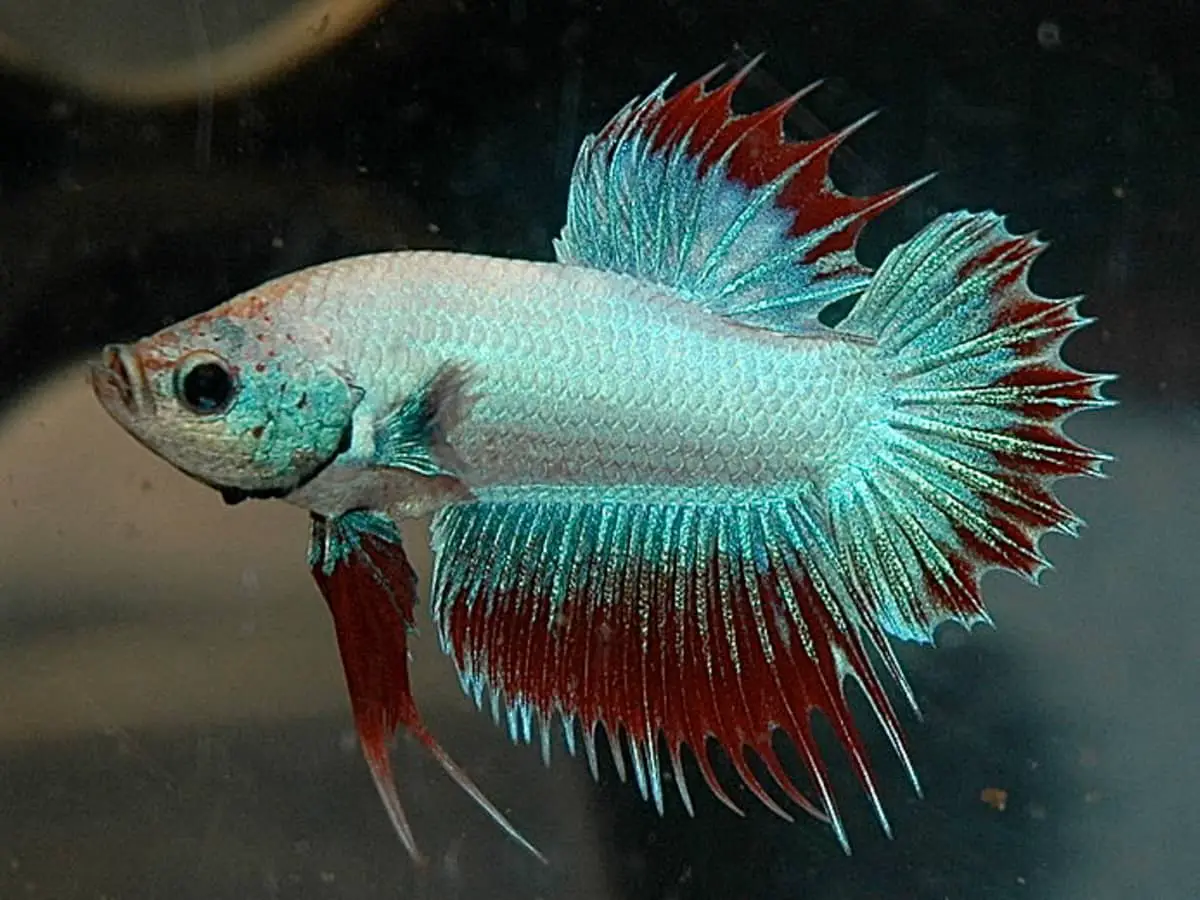Are you considering adding a betta fish to your home aquarium? As an owner, you may be wondering if betta fish should live alone or if they can coexist with other fish. While there are differing opinions on the matter, it’s important to weigh the pros and cons before making a decision.
Betta fish, also known as Siamese fighting fish, are known for their vibrant colors and flowing fins. However, their aggressive nature can make them difficult to live with other fish. In this article, we will explore the reasons why betta fish may or may not thrive in a community tank and help you make an informed decision on whether or not to keep them alone.
Should Betta Fish Live Alone?
Betta fish are known for their aggressive behavior towards other fish, which is why they are often kept alone. While they can live with other non-aggressive species, it’s important to provide enough space and hiding places to reduce stress. Keeping them in a tank with other bettas can lead to fighting, injury, and even death. It’s best to provide a comfortable and stress-free environment for your betta by keeping them alone in a suitable tank.

Should Betta Fish Live Alone?
Betta fish are one of the most popular aquarium fish in the world. These colorful fish are known for their beautiful fins and tails, making them a popular choice for hobbyists. One question that many people have when it comes to betta fish is whether they should live alone or with other fish. In this article, we will explore the pros and cons of keeping betta fish with other fish and help you decide whether you should keep your betta fish alone or in a community tank.
Pros of Keeping Betta Fish Alone
Betta fish are known for their aggressive behavior, and they can be territorial when it comes to their space. Keeping them alone in a tank can help prevent fights with other fish and ensure that they have enough space to swim around without being bothered by other fish. Additionally, when kept alone, betta fish can be easier to care for as they do not require as much maintenance as a community tank.
One of the biggest advantages of keeping betta fish alone is the ability to create a personalized environment for them. You can choose the perfect tank size, decorations, and plants that will suit your betta fish’s needs. This will help create an environment that is perfect for them to thrive and be happy.
Benefits of Keeping Betta Fish Alone
– Betta fish can be easier to care for when kept alone
– They have more space to swim and less chance of fighting with other fish
– You can create a personalized environment for your betta fish
Cons of Keeping Betta Fish Alone
While keeping betta fish alone has its advantages, there are also some downsides to consider. One of the biggest drawbacks of keeping betta fish alone is the potential for boredom. Betta fish are intelligent creatures that require stimulation to be happy and healthy. When kept alone, they may become bored and lethargic, leading to a decline in their overall health.
Another disadvantage of keeping betta fish alone is the lack of socialization. Betta fish are social creatures that enjoy the company of others. When kept alone, they may become lonely and stressed, leading to a decline in their health and well-being.
Disadvantages of Keeping Betta Fish Alone
– Potential for boredom and lethargy
– Lack of socialization and potential for loneliness
Pros of Keeping Betta Fish in a Community Tank
Keeping betta fish in a community tank can be a great way to provide them with socialization and stimulation. When kept with other fish, betta fish can display their natural behavior, including flaring their fins and tails. Additionally, a community tank can provide your betta fish with a more diverse environment, which can help keep them healthy and happy.
Another advantage of keeping betta fish in a community tank is the ability to create a stunning display. Betta fish are known for their vibrant colors, and when kept with other fish, they can create a beautiful display that is sure to be the centerpiece of any room.
Benefits of Keeping Betta Fish in a Community Tank
– Provides socialization and stimulation
– Creates a stunning display
Cons of Keeping Betta Fish in a Community Tank
While keeping betta fish in a community tank has its advantages, there are also some downsides to consider. One of the biggest drawbacks of keeping betta fish in a community tank is the potential for fights with other fish. Betta fish are known for their aggressive behavior, and they may attack other fish in the tank, leading to injury or death.
Another disadvantage of keeping betta fish in a community tank is the potential for stress. Betta fish are used to having their own space and may become stressed when forced to share it with other fish. This can lead to a decline in their overall health and well-being.
Disadvantages of Keeping Betta Fish in a Community Tank
– Potential for fights with other fish
– Potential for stress and decline in health
Betta Fish Vs Other Fish
When it comes to choosing other fish to keep with betta fish, there are a few things to consider. First, it is important to choose fish that are not aggressive and will not attack your betta fish. Additionally, you should choose fish that have similar water requirements to your betta fish to ensure that they can coexist in the same tank.
Some good fish to keep with betta fish include:
– Corydoras Catfish
– Neon Tetras
– Harlequin Rasboras
– Cherry Barbs
Best Fish to Keep with Betta Fish
– Corydoras Catfish
– Neon Tetras
– Harlequin Rasboras
– Cherry Barbs
Conclusion
In conclusion, whether you should keep your betta fish alone or in a community tank depends on several factors. While keeping betta fish alone can be easier to care for and provide a personalized environment, it can also lead to boredom and loneliness. Keeping betta fish in a community tank can provide socialization and create a stunning display, but it can also lead to fights and stress. Ultimately, it is up to you to decide what is best for your betta fish and their overall well-being.
Frequently Asked Questions
Here are some commonly asked questions about betta fish and whether they should live alone.
Should Betta Fish Live Alone?
Betta fish are known for their aggression and territorial nature. In the wild, they live alone and only come together to mate. As a result, many people believe that betta fish should live alone in captivity as well. However, this is not always the case.
If you have a large enough tank, with plenty of hiding spaces and plants, you may be able to keep multiple betta fish together. However, you should always monitor them closely and be prepared to separate them if they become aggressive towards each other. It’s important to remember that each betta fish is unique and may have different temperaments, so what works for one betta may not work for another.
Can Betta Fish Live with Other Fish?
While betta fish can be aggressive towards other fish, they can coexist with certain species. When choosing tank mates for your betta fish, it’s important to consider the size and temperament of other fish. Small, peaceful fish like neon tetras or guppies may be a good option. Avoid aggressive or fin-nipping fish, as well as fish that are larger than your betta.
It’s also important to make sure that your tank is large enough to accommodate multiple fish. Overcrowding can lead to stress and aggression, so make sure that your tank is at least 10 gallons for one betta and a few other fish.
Do Betta Fish Get Lonely?
While betta fish are known for their solitary nature, they can still become stressed or bored if they are kept in a tank without any stimulation. To prevent this, make sure that your betta fish has plenty of hiding spaces, plants, and decorations to explore. You can also add a mirror to your tank for short periods of time, which can help stimulate your betta and prevent boredom.
However, it’s important to remember that betta fish do not have the same emotional needs as humans or other pets. They do not experience loneliness in the same way that we do, but they can become stressed or bored if their environment is not stimulating enough.
Do Female Betta Fish Need to Live Alone?
Female betta fish can often coexist with other female bettas, as long as there is plenty of space and hiding spots in the tank. However, if you add a male betta to the mix, it can lead to aggression and fighting. If you want to keep multiple bettas in a tank, it’s often best to stick with females or keep each betta in their own tank.
It’s also important to remember that female bettas can be just as aggressive as males, so you should still monitor them closely and be prepared to separate them if necessary.
What Happens if Betta Fish Live Together?
If betta fish are kept together without proper precautions, it can lead to aggression and fighting. Betta fish are known for their territorial nature, and they will often attack other fish that invade their space. This can lead to injuries or even death.
However, if you have a large enough tank with plenty of hiding spaces and plants, you may be able to keep multiple betta fish together. It’s important to monitor them closely and be prepared to separate them if they become aggressive towards each other. It’s also important to remember that not all betta fish will get along, so what works for one betta may not work for another.

Do Betta Fish Get LONELY? | Does my betta need a friend?
In conclusion, the question of whether Betta fish should live alone is a complex one. While these fish are known for their aggressive behavior, they can coexist with other fish under the right conditions. However, it’s important to remember that Betta fish are natural loners and prefer to live alone in their own space.
If you do choose to keep Betta fish with other fish, make sure you provide them with enough space to swim and hide. You’ll also need to choose tank mates carefully and avoid any aggressive or territorial fish that could harm your Betta.
Ultimately, the decision to keep Betta fish alone or with other fish is up to you. Just remember that Betta fish are living creatures that deserve to be treated with care and respect. With proper research and attention, you can create a healthy and happy home for your Betta fish.
